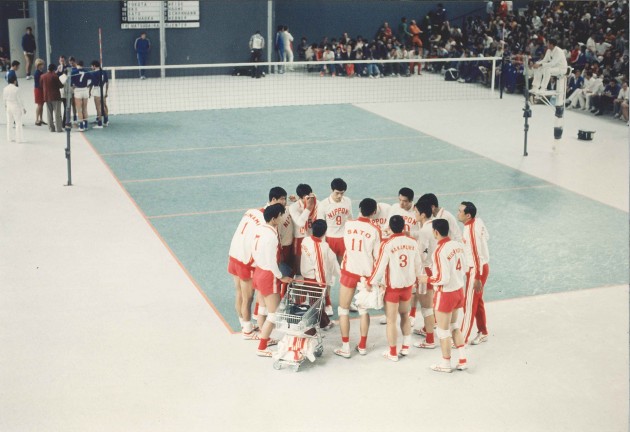
Munich sweet and sour for Japan
Inspired by the magical hands of playmaker Katsutoshi Nekoda, they moved smoothly through to the semifinals. There, however, Japan went 0-2 down in sets to Bulgaria. However, the Japanese clawed their way back into the match and eventually won it 3-2 after three hours and 40 minutes.
In the final against GDR, surprise winners over two-time Olympic champions USSR in the other semifinal, Japan again fell behind but this time only by one set and they swept past their opponents to take the gold 3-1 (11-15, 15-2, 15-10, 15-10). In the contest for third place the Bulgarian team lost more decisively than expected after the great show they had put up against the Japanese, the Soviets running out 3-0 (15-11, 15-8, 15-13) winners.
The women’s competition ended as the previous two Oympics had, in a showdown between USSR and Japan, Japan having won in 1964 and USSR in 1968. This time there was no more than a hair’s breadth between them in a spectacular final which pitted the agile and super-speedy Japanese against the powerful and service-perfect Soviets.
Indeed, the teams were so evenly matched that during the fourth set the serve changed ends 24 times consecutively without either side being able to score against their opponent. Finally, after 144 dramatic minutes, it was the USSR who prevailed 3-2 (15-11, 4-15, 15-11, 9-15, 15-11), while the bronze medal match was an all-Korean affair, the North beating the South 3-0 (15-7, 15-9, 15-9).
Following the Games, in the Official Bulletin No. 60 of the FIVB, President Paul Libaud said: “We can be satisfied with the results received during the Olympic Games in Munich. The competitions were observed by an enthusiastic public and a great number of IOC members who attended the most important matches and were charmed by them. Now they are really convinced of the athletic and spectacular value of our sport.”